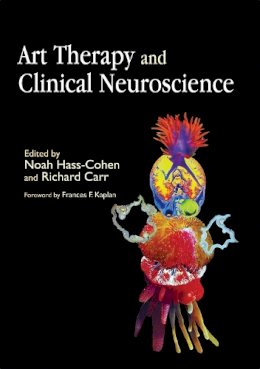
Art Therapy and Clinical Neuroscience
Noah Hass-Cohen
Art Therapy and Clinical Neuroscience offers an authoritative introductory account of recent developments in clinical neuroscience and its impact on art therapy theory and practice.
Contributors explore the complex relationship between art and creativity and neurological functions such as those that occur during stress response, immune functioning, child developmental phases, gender difference, the processing of imagery, attachment, and trauma. It deciphers neuroscientific language and theory and contributes innovative concrete applications and interventions useful in art therapy.
This book is essential reading for art therapists, expressive arts therapists, counselors, mental health practitioners, and students.
Product Details
About Noah Hass-Cohen
Reviews for Art Therapy and Clinical Neuroscience
Art Therapy: Journal of the American Art Therapy Association, Christopher Belkover, Milwaukee, WI There are ongoing scientific discoveries that support the work we do as art therapists and we need to be aware of them. This unique and novel book has to be part of the library of every practicing art therapist. Use it to map out your clients' journeys or explain to others what you do. I highly recommend it.
Canadian Art Therapy Journal This book is an outstanding portrait of art therapy, offering a new framework for the clinical practice of art therapy. The text has the potential to increase motivation in the multidisciplinary team and its clients, and to bring enthusiasm, provide stimulus for change and promote innovation in clinical and community settings.
International Journal of Therapy and Rehabilitation This is an impressive accomplishment Hass-Cohen and Carr and their contributors have blazed a trail for us to follow. Helping professionals who use art would be wise to put on their hiking boots and begin the journey.
from the Foreword by Frances F. Kaplan
